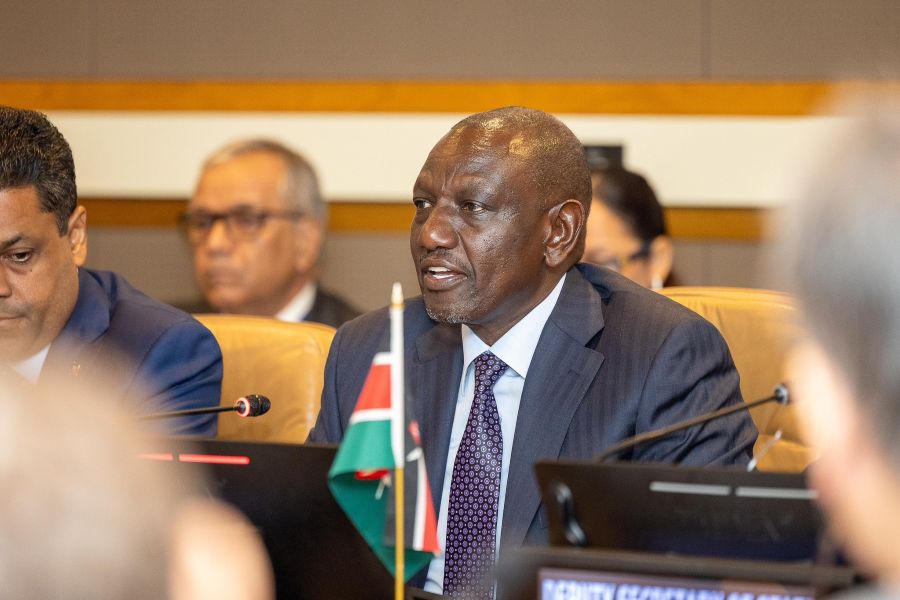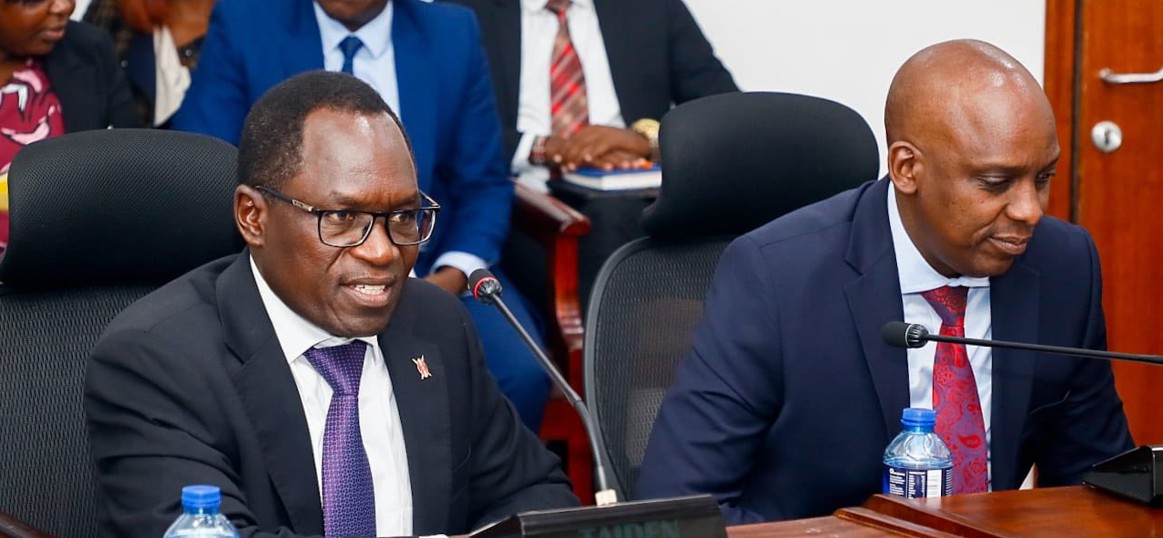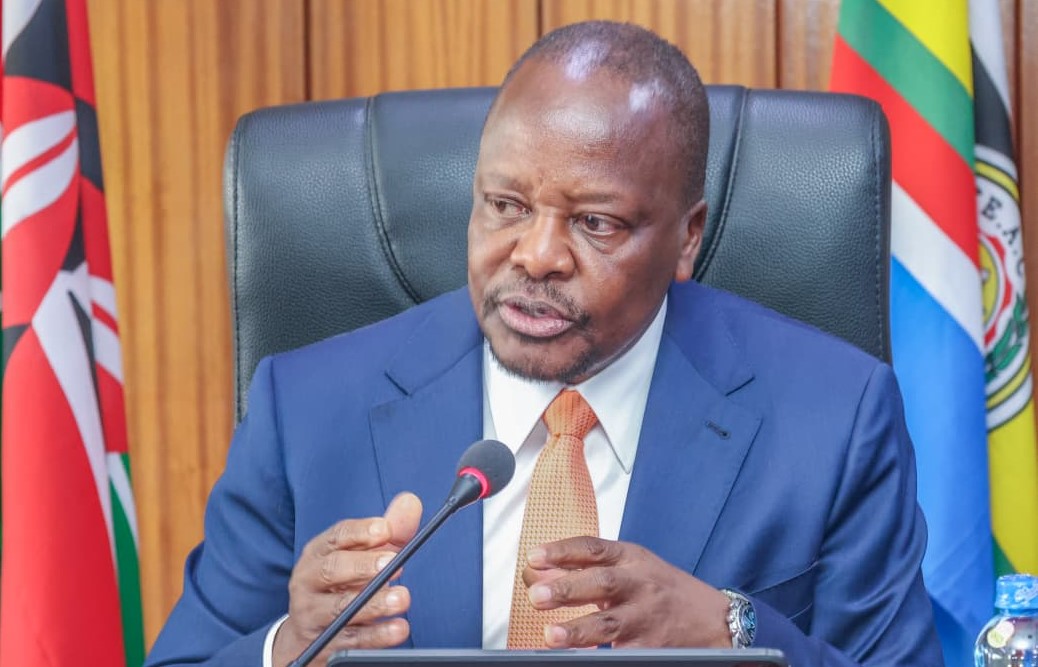Interior CS Murkomen announces panel to recruit NCIC chair, warns of rising hate speech

Murkomen’s move follows Senate outrage over NCIC’s sluggish response to online incitement and ethnic profiling.
The Ministry of Interior has established a six-member committee to oversee the recruitment of a new Chairperson and seven Members of the National Cohesion and Integration Commission (NCIC), ahead of the expiry of the current commissioners’ term on November 17, 2025.
In a gazette notice dated November 4, 2025, Interior Cabinet Secretary Kipchumba Murkomen announced that the selection panel will conduct the recruitment process in accordance with the law.
More To Read
- Senate flags surge in hate speech ahead of 2027 polls
- NCIC to summon Governor Mutahi Kahiga, warns ODM leaders over Bondo remarks
- Government condemns Governor Mutahi Kahiga’s remarks, warns against hate speech
- Turkana MP blames Interior Ministry for rising insecurity in Aroo
- Murkomen: Hate speech has declined in Kenya, but notorious inciters persist
- NCIC: Crisis is Isiolo County risks spilling over to neighbouring counties if unchecked
Those appointed to the panel include Dr Reuben Chirchir, Francis Meja, Pauline Mcharo, Col. (Rtd.) Alfred Mshimba, Michael Nzomo Mbithuka, and Lady Justice (Rtd.) Hannah Okwengu.
According to the notice, the Chairperson and Members of the NCIC will serve a single six-year term and will not be eligible for reappointment.
“The Cabinet Secretary for Interior and National Administration, in exercise of the powers conferred by section 17 of the National Cohesion and Integration Commission Act, hereby declares impending vacancies and constitutes a selection panel for the recruitment of nominees for appointment as chairperson and members of the commission,” reads the notice.
Hate speech resurgence
The announcement comes amid growing concern among legislators over the resurgence of hate speech, inflammatory statements, and ethnic profiling as Kenya heads toward the 2027 General Election.
MPs have warned that the country risks a repeat of the 2007 post-election violence if the spread of such remarks—especially on social media—is not contained.
On Monday, senators threatened to disband the NCIC and transfer its mandate to other agencies after expressing frustration over its perceived failure to curb hate speech and ethnic tensions. Appearing before the Senate National Cohesion and Regional Integration Committee, NCIC CEO Daniel Giti faced tough questions about the agency’s readiness to confront the rising tide of online hate speech, propaganda for war, and ethnic incitement.
Inflammatory remarks
Nominated Senator Catherine Mumma led the charge, condemning the inaction against inflammatory remarks by public officials.
“If you (NCIC) don’t take charge, this country will go down as such utterances are on the rise—hate speech, propaganda for war and negative ethnicity,” she said.
Giti explained that the Commission monitors both traditional and digital media and conducts training, sensitisation, and capacity-building initiatives on digital literacy, hate speech detection, and ethical online expression. He acknowledged that social media platforms are the main channels for spreading harmful content.
“The Commission has actively monitored social media platforms to promote cohesion and integration by curbing hate speech, ethnic contempt and related offences, and preventing incitement to violence and discrimination,” Giti said.
However, senators dismissed his response as inadequate. Nominated Senators Beth Syengo and Betty Montet criticised the Commission for seeming unaware of its core responsibilities, with Montet warning that the nation was “treading dangerous ground” ahead of the 2027 polls.
Concrete measures
Nominated Senator Joyce Korir added, “We don’t want stories but concrete measures on how you will handle this threat. We want to know the cases you have taken up and their progress. You are too casual in your work, and this is shameful.”
Last year, NCIC Chairperson Samuel Kobia revealed that the commission had intervened in 95 cases of social media hate speech—72 of them on X. Kobia condemned terms such as “tugeges,” used to insult supporters of certain political groups, describing such language as “hurtful, demeaning and dehumanising.”
The Senate also questioned the National Gender and Equality Commission (NGEC) over similar lapses. NGEC CEO Purity Ngina cited cases involving misogynistic and inflammatory remarks by public figures, including Isiolo Governor Abdi Guyo, Senator Fatuma Dullo, former Meru Governor Kawira Mwangaza, Tigania MP Mpuru Aburi, and EALA MP David Sankok.
“The National Gender and Equality Commission condemned these statements, demanded public apologies, and referred some cases to other oversight bodies,” Ngina said.
Supplying evidence
Communication Authority of Kenya Director-General David Mugonyi confirmed that the authority is working closely with both commissions by supplying evidence of hate speech from television, radio, and social media to aid enforcement.
“The Communication Authority of Kenya is working closely with both the National Cohesion and Integration Commission and National Gender and Equality Commission by providing them with evidence every time they have cases of hate speech to address,” he said.
The formation of the NCIC recruitment panel comes as Kenya enters a politically charged period, with legislators stressing the urgent need for proactive steps to curb hate speech, ethnic discrimination, and political violence ahead of the 2027 elections.
Top Stories Today













































